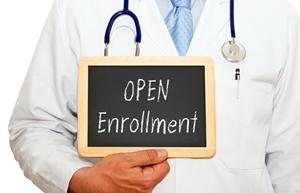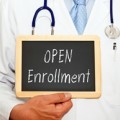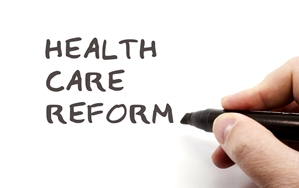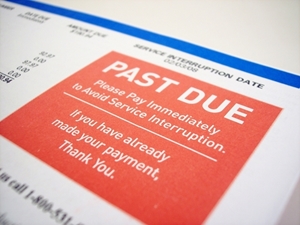
In order for the Affordable Care Act to sustain itself, young people have to be among the health care law's primary policyholders, seeing as how they're usually in good health, thus aren't in need of medical care as often as people who are older. In a positive sign for the mandate's financial solvency, millennials represent a substantial contingent of people who have signed up for coverage so far during open enrollment season, according to newly released government figures.
As of late December, slightly more than 2 million people under the age of 35 have purchased health insurance through the HealthCare.gov website, according to the U.S. Department of Health and Human Services. Open enrollment, which started in November and concludes Jan. 31, allows people who don't have employee benefits to secure a health policy through either the federal or state-based exchanges. This three-month window also gives Americans an opportunity to change plans if they so choose.
Enrollment up by nearly 20 percent
At the same time last year, approximately 6.4 million consumers signed up for coverage through one of the exchanges, according to Sylvia Burwell, HHS secretary, Reuters reported. This year over the same stretch of time, in excess of 8.2 million people have enrolled.
"We are off to a very strong start to Open Enrollment," Sylvia explained in a statement issued by HHS. "We are seeing record demand, and our message of quality, affordable coverage is resonating. People are signing up for coverage as well as helping their neighbors, friends and family members get covered."
She added that as of Dec. 17, roughly 6 million people signed up for a plan via HealthCare.gov, the federal exchange that most states use. Only 13 states have set up their own. State lawmakers say they opted in favor of HealthCare.gov due to cost considerations that made the move preferable.
Many of the people who have signed up for exchange-based health insurance are trying it for the first time. HHS noted that of the 6 million HealthCare.gov sign-ups, 2.4 million are new. That's an increase of more than 33 percent.
Burwell indicated that this fact alone suggests that Americans are starting to come around on the ACA, which hasn't exactly been received with open arms, especially when it first went into effect.
"The unprecedented demand and the millions of new customers who have signed up for health insurance send a clear message: The Marketplaces meet an important need that had gone unanswered for too long," Burwell said. "Millions of Americans want and need coverage, and they're finding affordable, high-quality coverage through HealthCare.gov – many for less than $75 per month in premiums after tax credits."
Burwell: Not taking our foot off the gas pedal
Though the numbers are noticeably stronger from the same period last year, HHS is far from satisfied, Burwell hastened to mention, stressing that regulators will stop at nothing to ensure that customers have the best experience possible.
HealthCare.gov has come a long way since its introduction. When it first rolled out, enrollees were met with a litany of glitches and false starts, preventing them from signing up. This led to frustration and headaches for millions of Americans. Some people were under the assumption that they were covered, only to find out otherwise after receiving the bill from their primary care physician following treatment.
Even though most people in the United States are covered through their workplace via employee benefits, a majority of Americans believe the government should step in if people are unable to afford it. Just over 50 percent of adults say that the federal government has a responsibility to see to it that all Americans are sufficiently covered, according to a recent poll conducted by Gallup.





